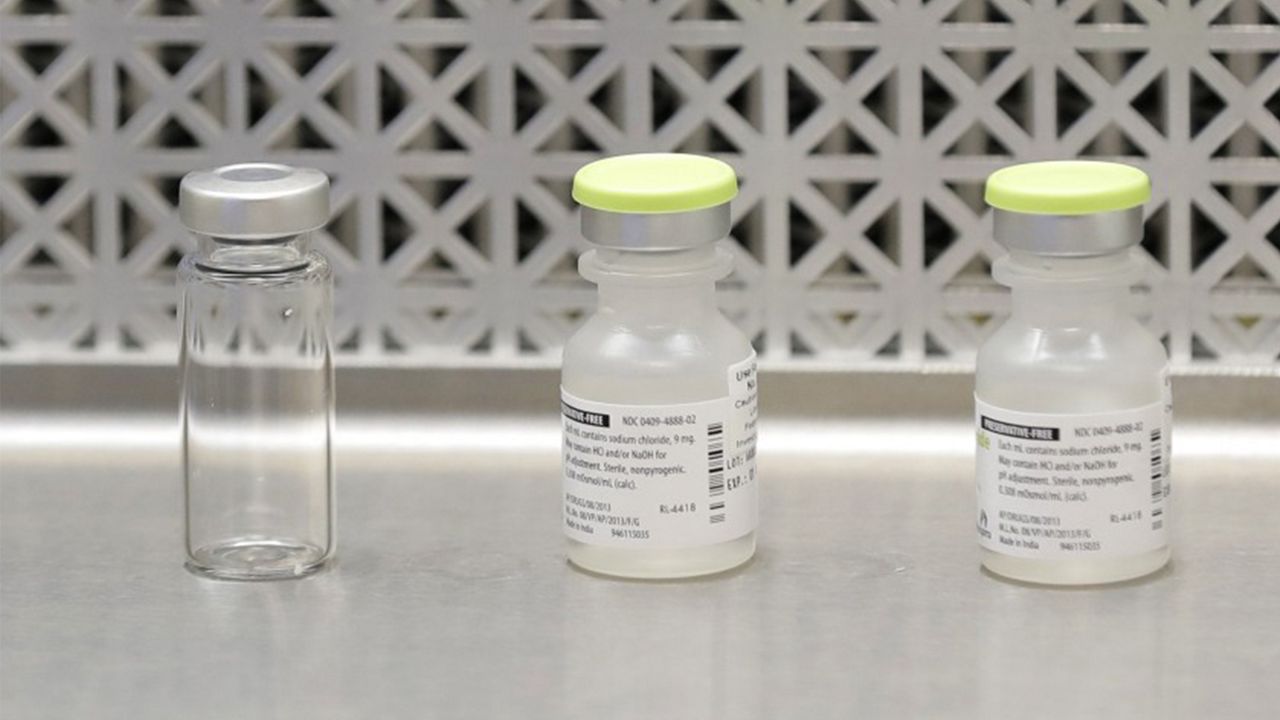LEXINGTON, Ky. – While the recent announcement that two COVID-19 vaccines will soon be available, getting those vaccines to the people who statistically need them the most could pose some challenges because of storage and transportation.
What You Need To Know
- Pfizer vaccine requires ultra-cold storage
- Many rural hospitals lack capability
- Moderna vaccine can be stored in regular refrigerator temperatures
- Space to store either could be a problem
It could be difficult distributing the vaccine to residents in rural Kentucky because many hospitals and health departments in those areas lack the necessary cold storage capability and the funds to purchase or lease the required ultra-cold freezers.
The vaccine developed by the pharmaceutical company Pfizer must be stored at negative 94 degrees Fahrenheit (-70 degrees Celsius) and typical freezers do not get that cold, making the logistics of distributing the vaccine difficult in rural areas.
The Centers for Disease Control and Prevention has advised state health departments against purchasing ultra-cold freezers – which cost $10,000 to $15,000 each – in anticipation of other vaccines with less demanding storage requirements becoming available. Moderna Inc. announced it has developed a vaccine that may be stored at standard refrigerator temperatures.
Several healthcare systems have purchased or leased additional ultra-cold freezers. Pikeville Medical Center (PMC), a nonprofit system serving Pike and surrounding counties in Eastern Kentucky, is one rural hospital with storage capability.
“With PMC’s new pharmacy expansion, we are prepared for the COVID vaccine,” said Kansas Justice, Pikeville Medical Center’s COO. “The plan is to have ultra-cold storage in place by Dec. 1. At this time, all other storage requirements are in place.”
PMC’s cold storage capability is likely an exception among rural hospitals in Kentucky. Olivia Goldhill reported for Stat that purchasing ultra-cold freezers is likely “out of reach” for cash-strapped rural hospitals and National Rural Health Association CEO Alex Morgan said nearly half of rural hospitals in the country have lost money during the pandemic, adding rural residents need the vaccine the most.
“Hundreds of rural, small towns all across the U.S. have a higher percentage of elderly, low-income [residents], and a higher percentage of the community with multiple chronic health issues,” Morgan told Goldhill. “In this financial environment, you can imagine that there is simply no consideration of rural hospitals purchasing storage equipment for this ultra-cold distribution.”
Another problem related to storing the ultra-cold vaccine noted by Goldhill is Pfizer’s shipping method, which is in dry-iced containers with at least 1,000 doses. Once the containers have been opened, the vaccines are good for no more than 15 days, and only then with scrupulous attention to re-icing and limited box opening.
“The time pressure is more intense in rural areas, where the longer delivery time eats into the number of days when the vaccine can be safely stored in their boxes upon arrival,” Goldhill reports. “Regions with smaller populations will struggle to use the 1,000-dose supply in the necessary time period, creating a risk some of the vaccines will go to waste, though Pfizer plans to have smaller boxes available by early 2021. In contrast, the vaccine can be stored in ultra-cold freezers for six months.”
Dr. SarahBeth Hartlage, medical officer with the Louisville Metro Government, told Spectrum News 1 KY reporter Eileen Street another challenge lies in the vaccine’s supply chain.
“Because the cold storage is limited in an urban setting and may be completely unavailable in a rural setting, are we looking at storing things long-term in an urban area and then transporting it once a week to a rural area,” she asked. “I’m not sure what that train looks like, but the supply chain in general, I think, is going to be especially challenging for our cohorts in the rural areas.”
A possible remedy to the transportation, storage, and distribution dilemma in rural areas of the Commonwealth is Moderna Inc.’s MRNA.O COVID-19 vaccine, which could be more easily distributed because it can be stored for one month at standard freezer temperatures, but more storage space will still likely be needed. A possible short-term remedy to the Pfizer vaccine problem was proposed by Washington, D.C., Department of Health Senior Deputy Director of Health Emergency Preparedness and Response Patrick Ashley, who told WTOP News that long-term cold storage may not be needed for the Pfizer vaccine because the shipping boxes that keep it cold for 15 days may be re-supplied with dry ice. He also said the Pfizer vaccine has a window of a little more than a day once it’s defrosted when it can still be used.
Pfizer requested on Tuesday its vaccine be given emergency approval as the country’s COVID-19 cases continue increasing rapidly.



